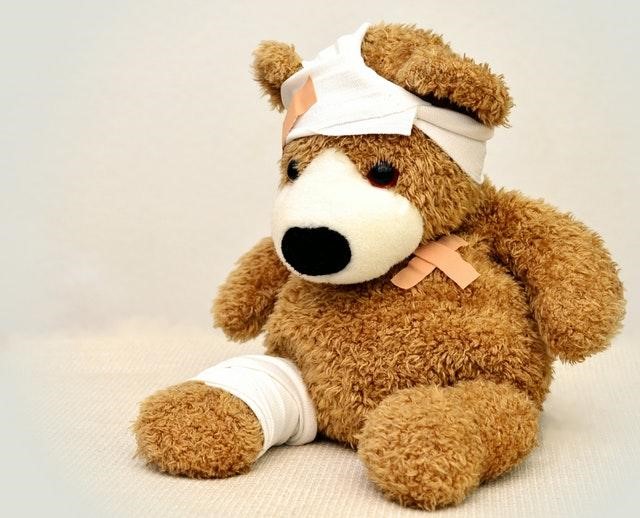BY: Caleb Anderson
What is Chronic Pain?
Unlike your typical aches and pain, chronic pain is persistent and lasts for at least 12 weeks. Chronic pain can be felt anywhere on the body and has various causes. The discomfort can be so intense, it prevents the person from carrying out day-to-day activities as it restricts movement and impairs flexibility, strength, and stamina.
Chronic pain can be difficult to diagnose because pain is such a subjective experience. We experience pain as our body’s defensive mechanism towards tissue damage. Special nerve endings detect the damage and send signals through the spinal cord to our brains. The brain can interpret the signals in a number of ways:
- Tenderness
- Numbing
- Shock-like experience
- Tingling
- Burning
- Aching
- Throbbing
- Pressure
Those experiencing pain for an extended amount of time should pay special attention to the type, timing, and location of the pain in order to report it to their doctor.
Causes of Chronic Pain
A doctor can typically diagnose the cause of a person’s chronic pain through analysis of their medical history, current physical, and the patient’s pain profile. However, sometimes an initial observation will not readily provide a diagnosis and further testing must be conducted. It’s important to be thorough and honest about both you and your family’s medical history to help determine a cause. Common medical issues responsible for chronic pain include:
- Migraines
- Residual pain post-trauma
- Nerve damage
- Surgical operations
- Lower back strain
- Arthritis
- Cancer
- Chronic fatigue syndrome
- Endometriosis
- Fibromyalgia
- Inflammatory bowel disease
- Interstitial cystitis
- Temporomandibular joint dysfunction (TMJ)
- Vulvodynia
- Obesity
Treating Chronic Pain
Stopping chronic pain is different for everybody because first and foremost you must treat the underlying cause of the pain. However, for some patients– the 10 million people with fibromyalgia, for instance– there is no cure to the source of their pain. For these people, managing the discomfort is the only course of action. This may include taking prescribed medications. Synthetic drug addiction is a serious problem that affects a person physically, mentally, and spiritually. If you are prescribed a drug with an addiction risk, be sure to watch for signs of a developing problem. Signs of addiction include (but are not limited to):
- Nausea and vomiting
- Agitation
- Seizures
- Hallucinations
- Weight loss or gain
- Jaundice
- Unexplained bleeding
- Swollen abdominal area
- Memory loss
- Rapid aging
- Depression and suicidal thoughts
- Anxiety
- Psychosis
- Legal and financial problems
Lifestyle Changes for Chronic Pain
Managing chronic pains relies on healthy lifestyle choices that support a healthy body and reduce inflammation. One of the biggest triggers for chronic pain is stress. Developing a routine and home environment that helps minimize stress can make managing chronic pain an easier endeavor to achieve.
Eating a healthy diet, regular exercise, and getting enough sleep are three healthy habits doctors recommend for everyone– but for patients with chronic disease, they are mandatory. Junk food full of cheap sugars, saturated and trans fats, salt, preservatives, and other unsavory chemicals mess with your body’s chemistry and cause dehydration, bloating, constipation, acid reflux, mood swings, headaches, and irritability. They trigger your body’s inflammatory responses, putting your body at risk for a chronic pain flare up.
While eating junk messes with your body’s chemistry, exercise helps balance it. Being active helps strengthen the bones and muscles, which reduces chances of injury. Furthermore, the hormones and neurotransmitters released when exercising help fight stress and can even reduce the amount of pain you already feel.
Finally, your body needs to rest in order to restore itself after a long day of maintenance. Unfortunately, chronic pain often disrupts sleep, creating a debilitating cycle that is hard to break. Practicing good sleep hygiene helps encourage restorative rest, but it may not be enough for some. If your chronic pain is so intense it causes you to miss crucial hours of sleep, be sure to bring this up with your doctor to discuss your options in treatment.
Chronic pain affects millions of people and disrupts their day-to-day lives. Because there are so many causes of chronic pain, treatment often relies on the underlying issues at hand. Whatever your treatment, incorporating lifestyle habits like a healthy diet, exercise, and plenty of sleep can make it easier to manage chronic pain.
Caleb Anderson developed an opiate addiction after being in a car accident. He’s in recovery today and wants to inspire others to overcome their addictions.
Image via Pexels
 Copyright secured by Digiprove © 2018 Linda Girgis, MD, FAAFP
Copyright secured by Digiprove © 2018 Linda Girgis, MD, FAAFP


